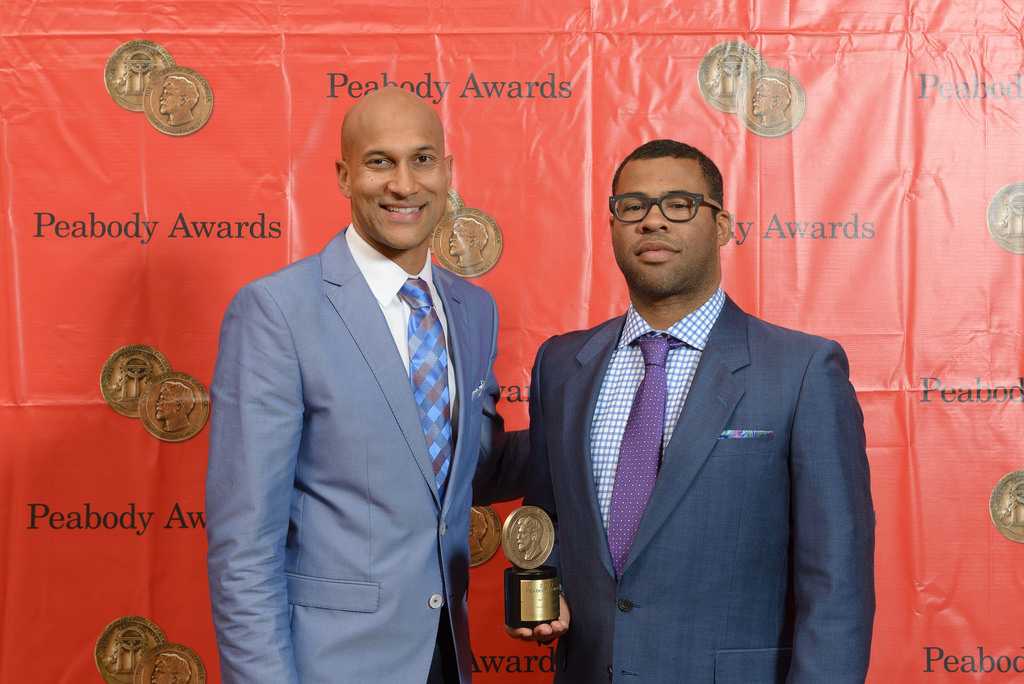Get Out is the directorial debut for Jordan Peele of Key & Peele fame. Featuring rising talents such as Keith Stanfield, Allison Williams, and the main character Daniel Kaluuya, Get Out is not the film you’d expect to come out of a first time film director, or even a comedian for that matter.
The film introduces us to the characters of Chris and Rose, (played by Daniel Kaluuya and Allison Williams, respectively) an interracial couple going to stay at her family’s house way in the woods.
Tension arises when Chris realizes that Rose’s family is overtly defining him by racial stereotypes, and that both the gardener and the maid are acting very suspicious.
What at first seems like innocent lack of racial awareness, slowly turns into something more sinister.
“Daniel Kaluuya’s emotional projection onto his character is outstandingly good.”
The suburbs are a trope of horror cinema because of their eerie familiarity and isolation. Get Out knows this, but uses it in a different way to comment on race.
Here, the suburbs represent the fear of having no one to hear your screams, but also the fact that there are significantly less black people than the city where Chris resides. The suburbs, occupied mostly by white people, are unfamiliar and scary.
Get Out has no clear approach to any single genre; it manipulates rules and clearly uses each genre to benefit it’s own storytelling.
To back up this fact, Rotten Tomatoes defines Get Out’s genre as: “Comedy, Horror, Mystery & Suspense.” But what these labels don’t really describe is that at the heart of the film, it is satire.
From scathing critiques of passive racism to modern police racial profiling, not a single stone is left unturned.
When a black character is attacked on screen within the first 5 minutes of the film and presented as the first character to fall victim to Peele’s world, we understand as the film progresses that this is no accident.
This film is purposeful in not only of its critique of modern racism, but of modern horror’s passive racism as well.
Among its many strengths, Get Out’s critiquing feels so unique and so watchable because of how it’s statements are in the details.
The statements about racism are there if you look for them and, while you may be able to pick up on them thematically or in basic plot details, it’s the things you don’t notice right away that really strike a chord.
When Chris is talking about his fears and Rose gets frustrated because he’s being weird, she is shutting him down, reducing his opinion and thoughts just like the rest of the family or friends.
It parallels the real life trope of “mansplaining,” where a man feels as though he can accurately describe what a woman feels like instead of an actual woman. Here, it’s subtle, and it’s less about gender than it is about race, but it’s definitely there.
Similarly to this year’s Oscar-winner for Best Picture Moonlight, one of the most stunning parts of Get Out is how black skin is filmed using colorized lighting.
There are some truly gut-wrenching close-ups of Daniel Kaluuya’s face in which there is a blue hue surrounding his head, not only suggesting the horror of his situation, but how his situation has become otherworldly.
“Among its many strengths, Get Out’s critiquing feels so unique and so watchable because of how it’s statements are in the details.”
It’s a small detail that makes a world of difference, not only in how we are able to see our main character, but how it adds to our fear of his situation and to our real world ones.
In addition to the help he’s getting from cinematographer Toby Oliver, Daniel Kaluuya’s emotional projection onto his character is outstandingly good. His contorting face leaves no question for the audience as to what he’s feeling or even what he’s thinking.
Even in his subtler moments, Kaluuya’s portrayal of emotional separation and impassivity toward his surroundings do not go unnoticed.
He is a master class in this role and it’s really wonderful to see such a new and powerful actor set to take his role among the Hollywood elite.
Get Out may fly over some of our heads. It may seem like a movie that doesn’t understand what it’s doing or may come off like it is too on the nose to some of us.
Some of us will get too focused on plot details or irrelevancies in the ending. For some of us, the film won’t be scary because it’s not relatable or ridiculous. As it turns out, Get Out is the movie for those people. It’s about empathy and race and gender and just about everything else. It’s fantastic.
